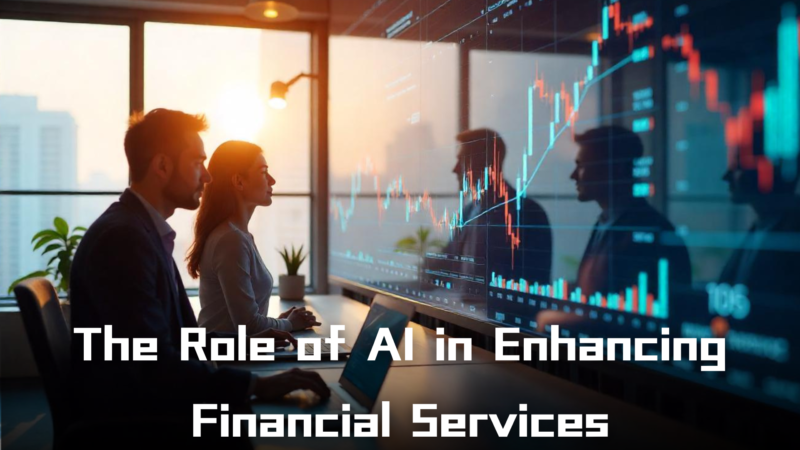The Role of AI in Enhancing Financial Services

The Role of AI in Enhancing Financial Services
The Role of AI in Enhancing Financial Services: From Robo-Advisors to Fraud Detection
Robo-Advisors: Personalized Wealth Management at Scale
The robo-advisors empowered by AI are transforming wealth management by offering individualized financial advisory service at highly minimized costs when compared to traditional advisory service costs. The main benefits in these digital platforms is that they first rate the user’s financial condition, goals, and risk tolerance by processing these into algorithms to make a personalized investment strategy. Betterment and Wealth front are some examples of robo-advisors that popularized the democratization of the wealth management firm.
 AI also allows for continuous optimization of a portfolio with automation wherein investments would be automatically rebalanced to the prescribed limits based on market conditions or client preferences. This is not only time-saving but also ensures portfolios kept in line with long-term goals.
AI also allows for continuous optimization of a portfolio with automation wherein investments would be automatically rebalanced to the prescribed limits based on market conditions or client preferences. This is not only time-saving but also ensures portfolios kept in line with long-term goals.Fraud Detection: Layering Another Layer of Security Over Financial Transactions
Fraud detection is one of the most important applications of AI in finance. Banks deal with millions of transactions every day; thus, they are exposed to being targeted more and more by fraudsters. The complexities of fraud schemes are rising beyond the capabilities of the traditional rule-based systems; however, AI proves to be more capable of coping with them.
The fraud-detection AI system uses machine learning algorithms to model real-time patterns in transactions that flag suspicious activities. Such systems learn over time from the history of data and change with new threats, which could point to anomalies to indicate fraudulent activities. The predictive powers of AI means the likelihood of financial loss has reduced to the minimum when fraud is detected beforehand.

Predictive Analytics: Data-Driven Decision Making
AI can process a large amount of data at a rapid rate, which is an asset for high-speed processing. This serves to be very useful when applied in predictive analytics for financial institutions, especially in determining markets, the level of credit risk assessment, and the identification of the needs of customers. For example, a bank would be in a better position to understand how to better allocate the capital and minimize losses by predicting loan default rates using AI.
One advantage of predictive analytics is enhancing service relating to customers’ services with various kinds of financial products, which could be designed to offer quality services meeting the behavior and preference of a particular customer. Banks and fintech companies may offer loans, investment plans, or credit cards according to the behavior of an individual to ensure customer satisfaction and loyalty.

Algorithmic Trading: Speed and Precision in the Financial Markets
Similarly, AI plays a significant role in risk minimization of trading. AI analyzes real-time information and conditions and can make changes or halt trading at crucial times to avoid huge losses during widely erratic market fluctuations.

Conclusion
AI transforms the face of financial services through efficiency, security, and personalization. From robo-advisors providing accessible wealth management to AI-powered fraud detection systems safeguarding transactions, how AI can improve the optimization of financial services is almost infinite. With the further evolution of technology, AI will play a more integral role in the creation of a reshaped future of finance that provides businesses and consumers with smarter, faster, and safer services.
Important Link
- How did Kris Kristofferson die
- How to sign in bank of America online
- Millie Bobby Brown and Jake Bongiovi: A Love Story for the Ages
- India Women vs South Africa Women Cricket Match 2024
- Is Iran attacking Israel
- What happened to John Amos
- How many leagues are there in sports
- What are sports leagues
- How many times India beat Bangladesh?
Disclaimer: chronobazaar.com is created only for the purpose of education and knowledge. For any queries, disclaimer is requested to kindly contact us. We assure you we will do our best. We do not support piracy. If in any way it violates the law or there is any problem, please mail us on chronobazaar2.0@gmail.com
